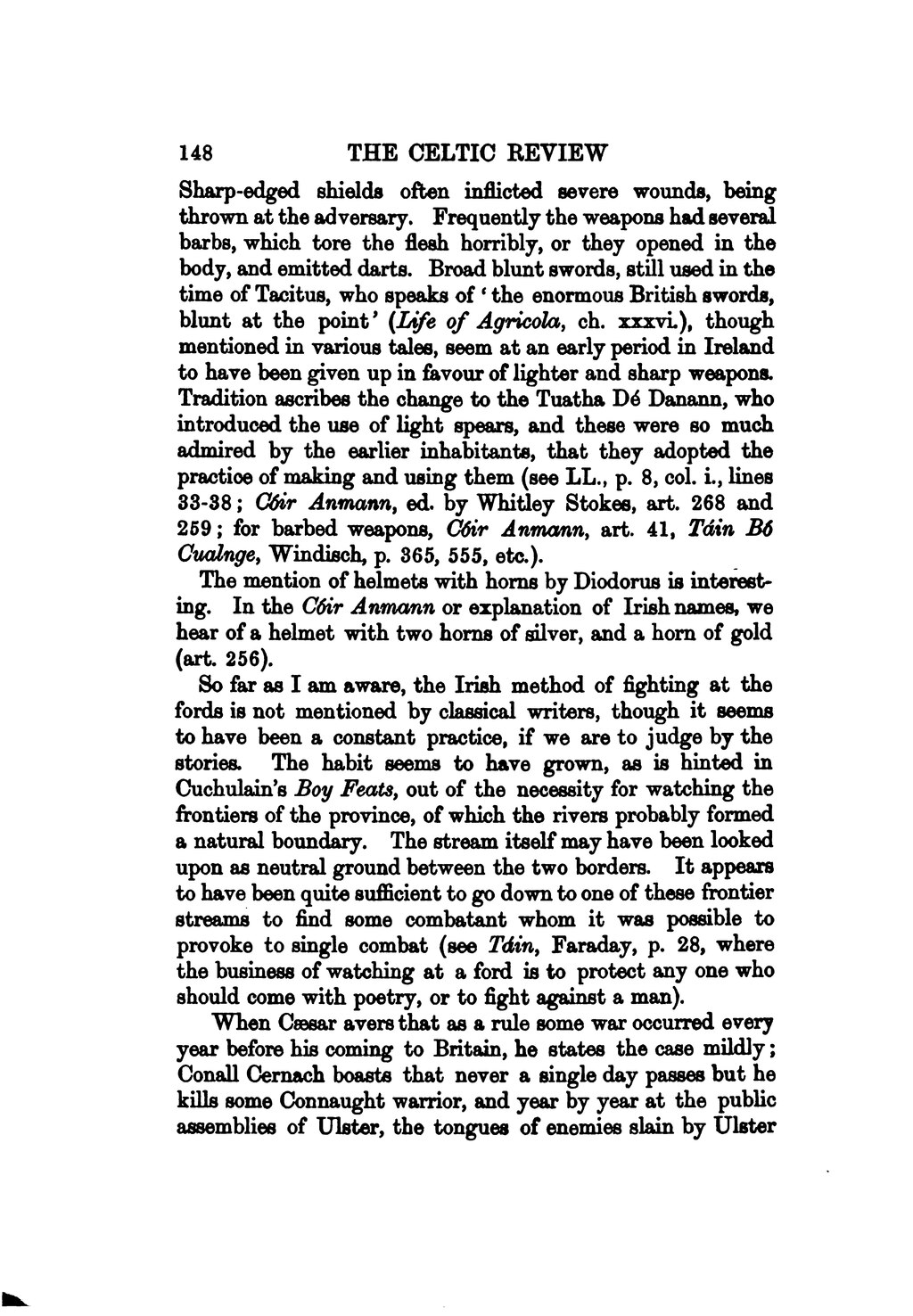Sharp-edged shields often inflicted severe wounds, being thrown at the adversary. Frequently the weapons had several barbs, which tore the flesh horribly, or they opened in the body, and emitted darts. Broad blunt swords, still used in the time of Tacitus, who speaks of ‘the enormous British swords, blunt at the point’ (Life of Agricola, ch. xxxvi.), though mentioned in various tales, seem at an early period in Ireland to have been given up in favour of lighter and sharp weapons. Tradition ascribes the change to the Tuatha Dé Danann, who introduced the use of light spears, and these were so much admired by the earlier inhabitants, that they adopted the practice of making and using them (see LL., p. 8, col. i., lines 33-38; (Cóir Anmann, ed. by Whitley Stokes, art. 268 and 259; for barbed weapons, Cóir Anmann, art. 41, Táin Bó Cualnge, Windisch, p. 365, 555, etc.).
The mention of helmets with horns by Diodorus is interesting. In the Cóir Anmann or explanation of Irish names, we hear of a helmet with two horns of silver, and a horn of gold (art 256).
So far as I am aware, the Irish method of fighting at the fords is not mentioned by classical writers, though it seems to have been a constant practice, if we are to judge by the stories. The habit seems to have grown, as is hinted in Cuchulain’s Boy Feats, out of the necessity for watching the frontiers of the province, of which the rivers probably formed a natural boundary. The stream itself may have been looked upon as neutral ground between the two borders. It appears to have been quite sufficient to go down to one of these frontier streams to find some combatant whom it was possible to provoke to single combat (see Táin, Faraday, p. 28, where the business of watching at a ford is to protect any one who should come with poetry, or to fight against a man).
When Cæsar avers that as a rule some war occurred every year before his coming to Britain, he states the case mildly; Conall Cernach boasts that never a single day passes but he kills some Connaught warrior, and year by year at the public assemblies of Ulster, the tongues of enemies slain by Ulster
